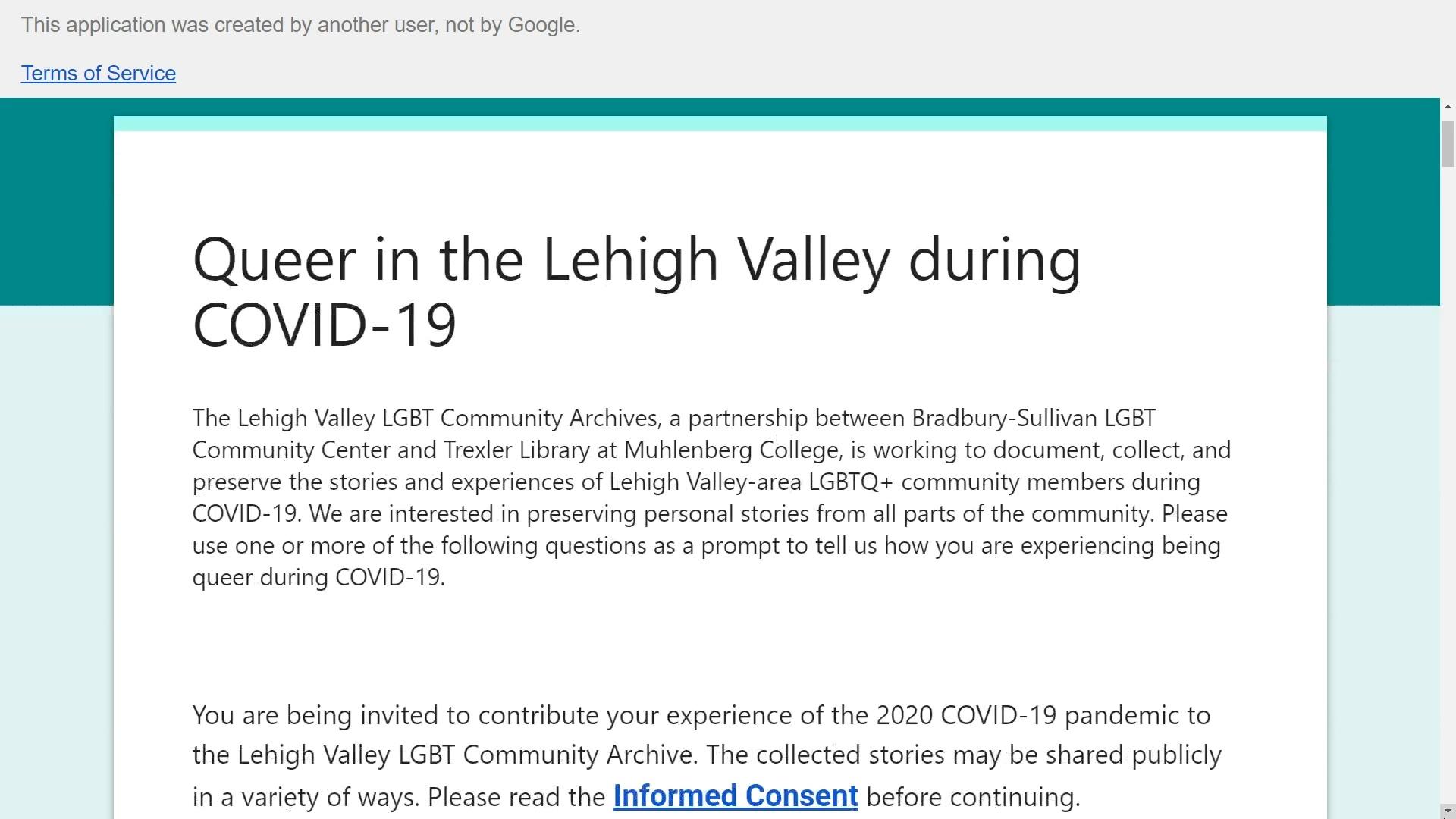ALLENTOWN, Pa. (WLVT) - The COVID-19 pandemic is making its mark on history, and as the world waits for an end, a new project is collecting stories from the Lehigh Valley.
The Lehigh Valley LGBT Community Archives are housed at Muhlenberg College's Trexler Library, with items curated from Bradbury-Sullivan LGBT Community Center in Allentown.
"We have some really great information that shows LGBT history, and we're still collecting materials," said center director Adrian Shanker.
The new project is thanks to a grant from the Lehigh Valley Engaged Humanities Consortium. The goal is to collect 40 years of public health history from the HIV/AIDS crisis to today. The focus right now is finding stories about the pandemic.
"I'm hoping that -- in 5, 10, 20, 40 years from now -- that people will be able to look back on these stories that will be preserved in the archive and have a very strong understanding of how the LGBT community experienced the COVID-19 pandemic in 2020 in the Lehigh Valley," Shanker said.
"The AIDS and HIV crisis, we have a lot of information about everything that surrounded that, but not necessarily stories from people," said Kristen Leipert, digital projects archivist at Muhlenberg, "So, I think this will be helpful in kind of putting those stories together in a way where you can see those people."
One of those people is Gerald Simcoe, 57, an artist who lives in Northampton Borough. He said one of the things he’ll write about is living in the countryside under quarantine.
"I noticed that spring has been taking very long, even though I've noticed it in my garden before. It's just I wasn't there every single day," he said. "Just living off the land. It's almost like we're in colonial times again."
Simcoe lived in New York City during the HIV/AIDS crisis and watched how quickly it took away lives.
"It was really quite frightening, because you would see a doorman once, and the next day he would be gone. He would be dead," he said. "People would just disappear. It was that fast."
It was a time when Simcoe said the LGBT community felt scared and separated, echoing experiences with the current pandemic.
"It is now the whole community isolated," he sad. "So, I think everybody's getting a taste of feeling what it's like to be a minority in a way."
"Understanding how the LGBT community experiences times of crisis helps us to to respond better in the next crisis," Shanker added.
The project has an online form that asks people to answer some general questions about life during the pandemic, as well as ones more specific to the LGBT community.
"We want to know how people are thinking about their sex life. We want to know about how people are thinking about their work life. We want to know how people are thinking about finding community when they can't go out to gay bars, when they can't come physically to our community center or participate in regular LGBT community programs," Shanker said. "How are they finding themselves feeling at home and connected?"
"More isolation, unfortunately," Simcoe answered, "but I think that a lot of us middle-aged gay people are used to that kind of thing, and if we survived this far, I think it's par for the course."
"You can kind of gather value from all these stories and all these people are having such similar feelings right now," Leipert said, "and it helps you feel connected and sees how people are connected to each other."
People can submit stories anonymously if they want, and they can send stories through written word, as well as by uploading photos or videos of themselves. There's also an effort to collect oral history.
"I think it's a wonderful project, and I think these things should be documented in this way," Simcoe said.
The archives will collect stories until the end of July. The goal is to publicly present them in the fall, though the format has not been determined yet. For a look at the online submission form, click HERE.




